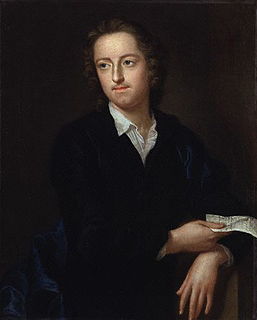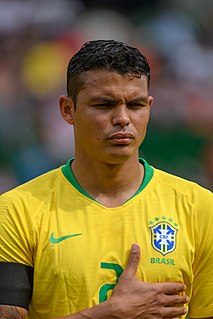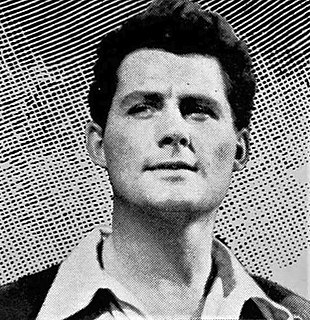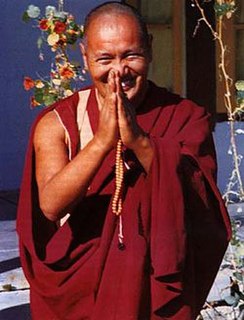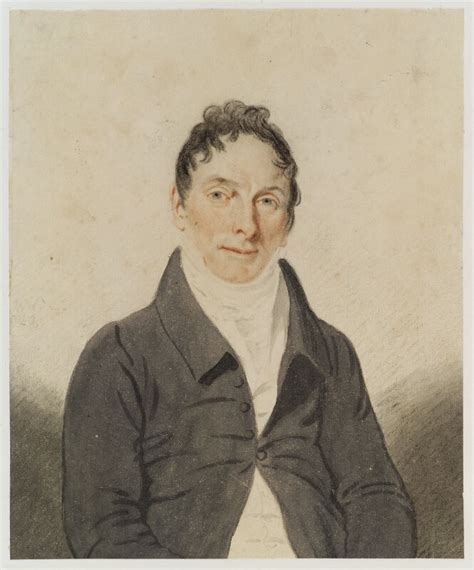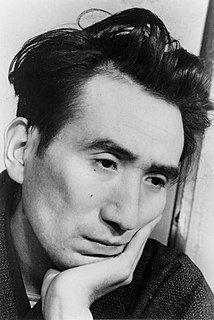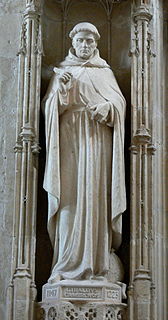A Quote by Hannah Arendt
Poetry, whose material is language, is perhaps the most human and least worldly of the arts, the one in which the end product remains closest to the thought that inspired it.
Related Quotes
Of all the art forms, poetry is the most economical. It is the one which is the most secret, which requires the least physical labor, the least material, and the one which can be done between shifts, in the hospital pantry, on the subway, and on scraps of surplus paper. ... poetry has been the major voice of poor, working class, and Colored women. A room of one's own may be a necessity for writing prose, but so are reams of paper, a typewriter, and plenty of time.
There is something at the bottom of every new human thought, every thought of genius, or even every earnest thought that springs up in any brain, which can never be communicated to others, even if one were to write volumes about it and were explaining one's idea for thirty-five years; there's something left which cannot be induced to emerge from your brain, and remains with you forever; and with it you will die, without communicating to anyone perhaps the most important of your ideas.
The arts are not simply skills: their concern is the intellectual, ethical, and spiritual maturity of human life. And in a time when religious and political institutions are so busy engraving images of marketable gods and candidates that they lose their vision of human dignity, the arts have become the custodians of those values which most worthily difine humanity, which most sensitively define Divinity.
Learning to say prayers in a foreign language...is not in itself the way to fulfill our highest human potential; there is nothing of transcending value to be gained from substituting one set of cultural conventions for another. People whose practice remains on this superficial level end up with nothing but confusion, not knowing who they are or what they should do.
Perhaps the author cited is one of those, who, shunning the practice of the world, have taught the world to shun return! whose poetry is too finely spun, whose philosophy is too and mystified for popular demand: perhaps we have experienced feeling which Mr. Wordsworth alludes to, in a poem worthy of simplicity and loneliness of the sentiment "Often have I sighed to measure By myself a lonely pleasure; Sighed to think I read a book Only read perhaps by me!
One must not consider a language as a product dead, and formed but once; it is an animate being, and ever creative. Human thought elaborates itself with the progress of intelligence; and of this thought language is a manifestation. An idiom cannot therefore remain stationary; it walks, it develops, it grows up, it fortifies itself, it becomes old, and it reaches decrepitude.
Dancing and building are the two primary and essential arts. The art of dancing stands at the source of all the arts that expressthemselves first in the human person. The art of building, or architecture, is the beginning of all the arts that lie outside the person; and in the end they unite. Music, acting, poetry proceed in the one mighty stream; sculpture, painting, all the arts of design, in the other. There is no primary art outside these two arts, for their origin is far earlier than man himself; and dancing came first.
Mother, recently I have discovered the one way in which human beings differ completely from other animals. Man has, I know, language, knowledge, principles, and social order, but don't all the other animals have them too, granted the difference of degree? Perhaps the animals even have religions. Man boasts of being the lord of all creation, but it would seem as if essentially he does not differ in the least from other animals. But, Mother, there was one way I thought of. Perhaps you won't understand. It's a faculty absolutely unique to man - having secrets. Can you see what I mean?
Poetry is the most informative of all of the arts because everything comes down to poetry. No matter what it is we are describing, ultimately we use either a metaphor; or we say "that's poetry in motion." You drink a glass of wine and say, "that's poetry in a bottle." Everything is poetry, so I think we come down to emotional information. And that's what poetry conveys.


